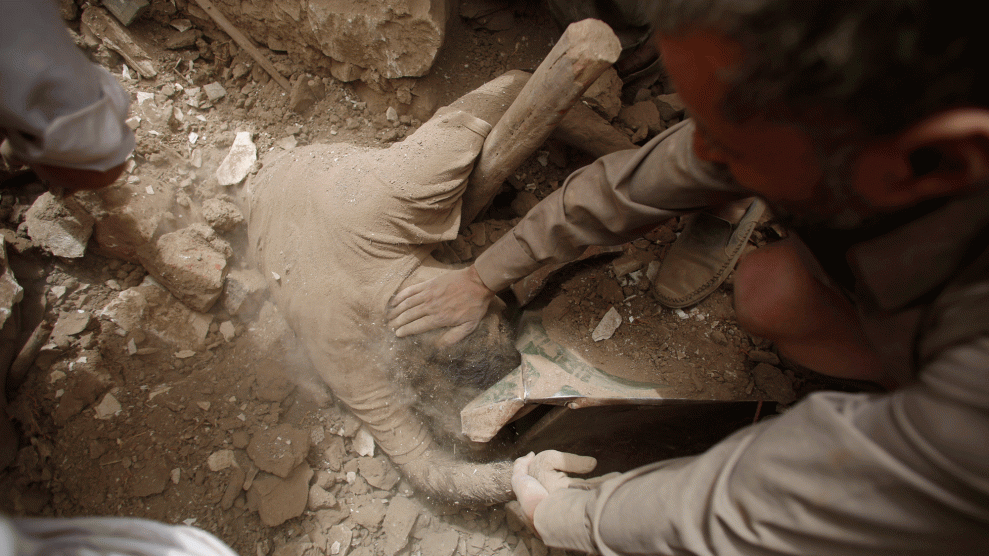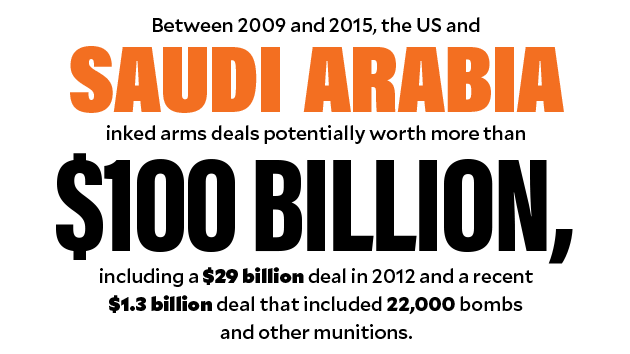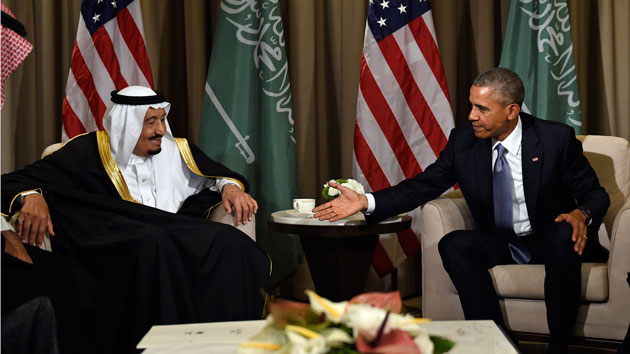
A body under the rubble of houses destroyed by Saudi airstrikes in Sanaa, Yemen, in June 2015Hani Mohammed/AP
“The United States is at war in Yemen today,” said Sen. Chris Murphy (D-Conn.) during a Senate debate this morning over a bipartisan resolution seeking to block a $1.15 billion arms deal that would supply Saudi Arabia with Abrams tanks and an assortment other weaponry.
While the resolution was voted down, 71 to 27, it marked the first time that members of Congress have publicly debated the wisdom of the United States’ role in a conflict that’s left thousands of civilians dead and millions on the verge of starvation. “There is a US imprint on every civilian death inside Yemen, which is radicalizing the people of Yemen against the United States,” Murphy said in support of the resolution. “There really is no way this bombing campaign could happen without United States participation…And this Congress has not debated this engagement.”
For the past year and a half, a Saudi-led coalition of Gulf States has been bombing Yemen, supposedly targeting the Houthi rebels who ousted Yemen’s president in March 2015. But more than a third of the airstrikes have hit civilian targets, including hospitals, schools, and places of worship. The United States has been providing the Saudis with bombs, intelligence, and aerial refueling for its jets.
Senators who opposed the resolution focused more on Iran than Saudi Arabia or Yemen. Senate Majority Leader Mitch McConnell (R-Ky.) argued that the recent US-Iranian nuclear deal enhanced Iran’s status as regional power, and that the resolution would “further damage our alliance and our partnership with the Kingdom of Saudi Arabia.” Sen. Lindsay Graham (R-S.C.) played up the relationship between the Yemeni rebels and Iran and glossed over Saudi Arabia’s actions in Yemen (which include allegations of war crimes) as “imperfect.” “If we say no to the Saudis, not only will that be seen as a slight by the Saudis, they’ll buy the arms somewhere else,” he warned.
Some observers don’t find those arguments very compelling. “It’s discouraging that the arguments are more about Iran than Saudi Arabia,” says Cole Bockenfeld, the deputy director for policy at the Project on Middle East Democracy. “A lot of this is tied to reassuring the Gulf countries after the Iran deal.” Scott Paul, Oxfam’s senior humanitarian policy advisor, says it’s not accurate to see Yemen’s Houthi rebels as proxies for Iran. “They’re unique to Yemen and have uniquely Yemeni ambitions and grievances,” he says. “They’re doing so in an incredibly problematic way, but they are not under the command or control of Tehran by any stretch of the imagination.”

McConnell also said that shutting off the Saudis from American arms would send them looking elsewhere for weaponry. “They don’t have to buy this equipment from us; they can buy it from somebody else,” he said. He added that there’s no evidence that the Saudis have used tanks on the ground in Yemen. However, the Saudis have hinted that they’re prepared to launch a ground attack on the Yemeni capital, Sanaa. Plus, the Saudis can’t easily turn to the Russians, Chinese, or European countries to buy these types of weapons systems. “Almost all of their equipment is US-manufactured,” says Bockenfeld. “For them to transition over to an entirely different kind of weapon from a different country would take several years and billions of dollars—a massive undertaking. Beyond the costs, frankly the US equipment is sought after not just to please and maintain the alliance, but also because it’s the best.”
Graham insisted that such arms transfers—Washington and Riyadh have inked weapons deals worth more than $100 billion since the beginning of the Obama administration—help Saudi Arabia attack Al Qaeda and ISIS. Yet, as Murphy observed, “None of the Saudi bombs are dropping on AQAP [Al Qaeda in the Arabian Peninsula]; they are all dropping on Houthi targets and civilian targets.”
Despite the resolution’s failure, lawmakers and observers maintain that the vote sent a strong message: that the longstanding US-Saudi relationship is under more scrutiny than ever before. But for now, the flow of arms will not be interrupted.












